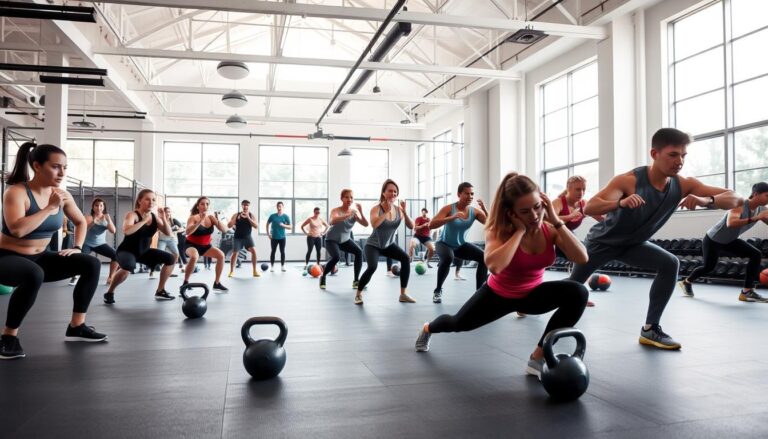Everyone understands that regular exercise is vital for good health. Not only does exercise help maintain a healthy weight, but it also strengthens muscles, improves cardiovascular health, and boosts mood.
Additionally, regular physical activity can reduce the risk of chronic diseases such as diabetes, heart disease, and certain types of cancer. It is important to find an exercise routine that you enjoy and can stick to in order to reap the many benefits of staying active.
But when Is this the ideal time to exercise?

That nagging problem keeps showing up when it comes time to schedule that exercise. There isn’t a generally applicable answer that is the nature of the issue.
This article will evaluate the merits and downsides of exercising first thing in the morning, second thing in the afternoon, and last thing at night from a scientific viewpoint.
In the end, we’ll aid you in choosing the appropriate workout plan that suits your lifestyle and your body’s natural rhythms.
By examining the science behind exercise timing, we can better understand how our bodies respond to physical activity at different times of the day. Some people may find that working out in the morning helps them kickstart their day and maintain consistency in their routine.
Others may feel more energized and focused during an afternoon workout, while some may prefer to wind down with a late-night exercise session. Ultimately, the key is to listen to your body and find a schedule that works best for you in order to achieve your fitness goals.
Exercise and the Body’s Natural Circadian Rhythms The Internal Clock

Our bodies operate on a 24-hour internal clock known as the circadian rhythm. Hormone production, core body temperature, and sleep-wake cycles are all regulated by this master regulator.
Understanding how your circadian clock interacts with exercise can help you discover the key to a more efficient workout. Research has shown that working out at certain times of day can maximize the benefits of your exercise routine.
For example, exercising in the morning can boost your metabolism and energy levels for the rest of the day. On the other hand, working out in the evening can help improve muscle strength and endurance. By aligning your workouts with your circadian rhythm, you can optimize your fitness goals and achieve better results.
Starting your day off right
Rise and shine, early birds! Morning workouts claim some prospective rewards. First, a pre-breakfast sweat exercise may enhance fat burning. Studies suggest exercising on an empty stomach could tap into stored fat reserves for energy.
Additionally, early exercise may elevate cortisol, a hormone with fat-mobilizing properties. This can lead to more efficient weight loss in the long run. Furthermore, starting your day with a workout can boost your mood and energy levels, setting a positive tone for the rest of the day.
So, lace up those sneakers, hit the gym or the pavement, and reap the benefits of a morning workout routine. Your body and mind will thank you for it!
Furthermore, early activities may generate a pleasant tone for the day. The endorphin rush post-exercise can increase mood and energy levels, presumably increasing attention and productivity throughout the day.
Finally, getting your exercise in early lowers the likelihood of unanticipated events derailing your fitness objectives later in the day.
Afternoon: Peak Performance Potential
For folks who struggle with mornings, afternoon activities are an enticing option. By mid-day, your body temperature has naturally risen, presumably boosting muscle flexibility and function.
Research reveals core body temperature often peaks between 2 p.m. and 6 p.m., coinciding with a window of heightened strength and power output.
This makes afternoon workouts an ideal choice for those looking to maximize their performance and results. Additionally, exercising in the afternoon can also help with stress relief and improving sleep quality, making it a great way to unwind after a long day.

Overall, taking advantage of this peak time for physical activity can lead to better overall health and fitness.
Afternoon activities could also be good for folks who enjoy weight training. By this time, you’ve likely had a chance to nourish your body with lunch, supplying the required energy for lifting heavier weights .
Evenings: Stress Relief and Sleep (Maybe)
Evening workouts may be an excellent way to unwind after a hectic day. Exercise is a well-known stress reliever, and the endorphin release may improve feelings of serenity and relaxation. This could be particularly useful for people who battle with nighttime anxiety.
However, the impact of evening activities on sleep can be a double-edged sword. While the aforementioned stress relief could promote higher sleep quality, the energy effects of exercise might make it harder to fall asleep, especially if you work out too close to bedtime.
It’s important to find a balance that works for you when it comes to evening workouts and sleep. Some people may find that exercising earlier in the evening allows them to wind down and relax before bed, while others may need to adjust their workout routine to avoid disrupting their sleep.
Experimenting with different times and types of exercise can help you find the right balance between staying active and getting a good night’s rest. Remember to listen to your body and make adjustments as needed to ensure you are reaping the benefits of exercise without sacrificing your sleep quality.
Beyond the Clock: Tailoring Your Workout to Your Lifestyle
While the study delivers valuable ideas, the optimal time to exercise ultimately hinges on your unique needs and preferences. Here are some other considerations to consider:
* Chronotype: Are you a morning lark or a night owl? Listen to your body’s natural impulses. If mornings are a difficulty, pulling oneself into a pre-dawn workout might lead to inconsistency.
* Schedule: Be practical about your regular routine. If mornings are busy, arranging an afternoon workout might be more sustainable.
* Energy Levels: When do you feel most energized and focused? Align your workouts with your peak energy windows for optimum results.
* Exercise Type: Consider the specific activity. High-intensity activities might be better suited for afternoons, while a relaxing yoga session would be perfect for evenings.
* Personal Preferences: Take into account what brings you the most enjoyment and motivation. If you love the peace and quiet of early mornings, then a pre-dawn workout might be the perfect fit for you.
* Listen to Your Body: Pay attention to how you feel during different times of the day. If you find that you are more alert and ready to tackle a challenging workout in the afternoon, then that might be the best time for you to exercise.
* Experiment: Don’t be afraid to try out different workout times and see what works best for you. Everyone is different, so it’s important to find a routine that aligns with your individual needs and preferences.
Finding Your Ideal Workout Window
Experiment! Try various exercise periods for a few weeks each and notice how your body responds. Track your energy levels, sleep quality, and exercise performance. Notice any themes that emerge?
Perhaps you’ll find that shorter, more intense workouts leave you feeling more energized throughout the day, or that longer, moderate workouts help you sleep better at night.
Pay attention to how your body feels during and after each type of exercise. By experimenting and tracking your progress, you’ll be able to tailor your workout routine to best suit your individual needs and goals. Remember, everyone’s body is different, so what works best for someone else may not work best for you.
FAQs: Unveiling Common Exercise Timing Concerns
Q: Is it okay to exercise on an empty stomach?
While exercising fast may provide some fat-burning benefits, it’s not for everyone. If you feel dizzy or tired, consider having a little pre-workout snack.
Q: What if I can’t maintain a constant training schedule? **
Consistency is key, but don’t be dismayed by occasional missed workouts. The most essential thing is to establish a regimen that works for you, even if it means exercising at different times throughout the week.





